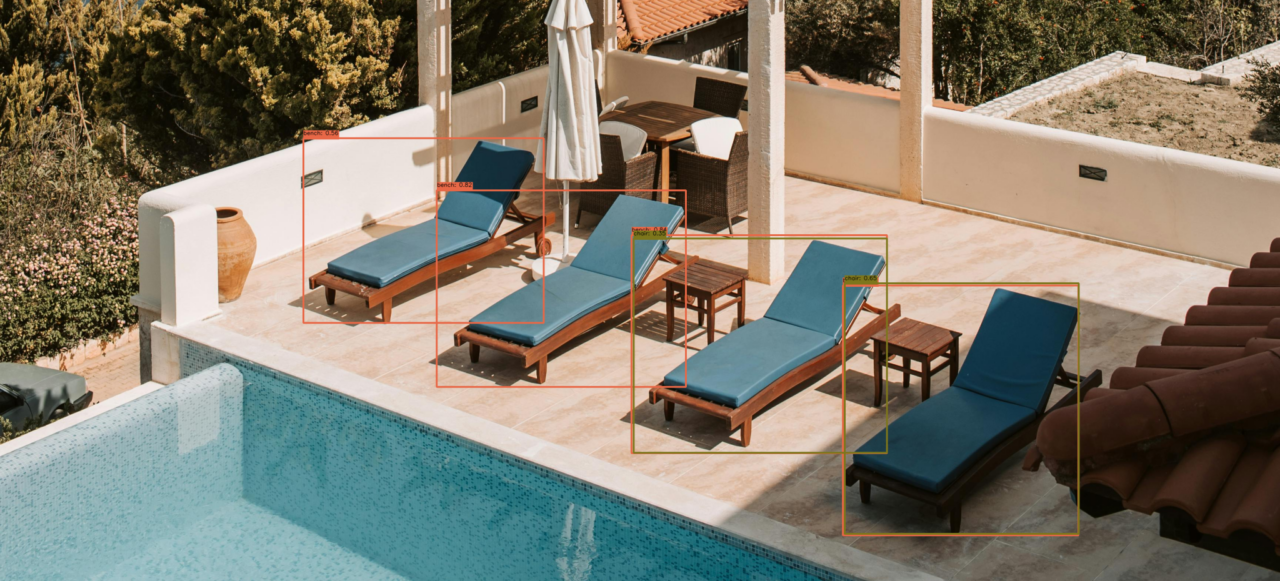In this article, we break down the use of computer vision for hotels and casinos.
Computer vision (CV) is a field of Artificial Intelligence (AI) that trains computers to interpret and understand the visual world, and it has transformed various industries. For example, in healthcare, it is used in medical imaging for analyzing X-rays, MRIs, and CT scans to detect anomalies such as tumors, fractures, and other medical conditions. In retail, it is used to automate the task of stock monitoring, tracking, and self-checkouts. It is also used in the Manufacturing industry for quality control and task automation.
One sector that has been slow to adopt CV is the hospitality industry, which includes hotels, resorts, and casinos. Its usage varies widely and is not fully integrated and used in comparison to other sectors like health care or manufacturing. However, lately it has picked up speed. Computer vision is increasingly being adopted in the hospitality industry.
Importance of the Hospitality Industry
Hospitality is the practice of welcoming and entertaining people. It primarily involves providing food, drinks, recreation, and lodging in the form of hotels, resorts, and casinos. This industry globally generates over $7 trillion in revenue and employs 292 million people. In various countries, the hospitality industry is essential for economic success, as it depends on it.
As this industry deals with humans and them being happy with their service, customer satisfaction is at the forefront. By incorporating AI and CV, customer satisfaction can be enhanced in hotels, resorts, and casinos. AI and automation services can reduce human errors, provide predictive insights, and analyze large data sets to generate valuable insights into business information.
This leads to improved business expertise and better customer experiences. AI helps businesses identify and optimize future sales opportunities, enhancing both daily operations and long-term strategies in the hospitality industry.
Moreover, AI and robotic technologies ensure consistent quality products and services, significantly impacting the hospitality sector. The most useful cases are in-person customer service, chatbots, messaging tools, machine learning-powered business intelligence tools, and virtual and augmented reality. Let us look into how we can use CV and AI for hotels and resorts in various activities.
Applications of CV for Resorts and Hotels
In-Person Customer Service
With the advancement of LLMs and how AI can speak human-like language, tone, and voice, hotels can create virtual assistants that can provide services such as:
- Room bookings and Room Services
- Reservations
- Check-outs
- Answering customer inquiries
- Solving typical problems
- Assisting with hotel services
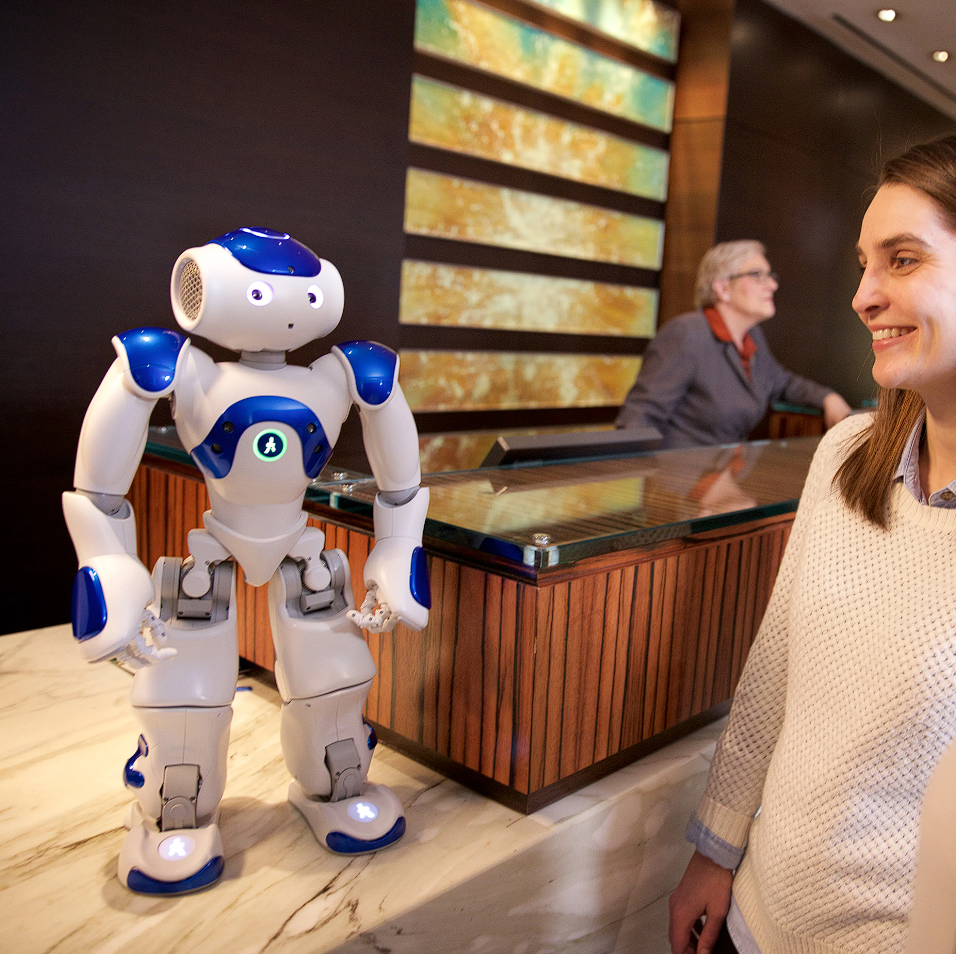
For example, the AI robot Connie was implemented by the Hilton group. The robot uses IBM’s Watson machine-learning APIs, such as speech-to-text, text-to-speech, and its natural language classifier. It provides tourist information to customers and learns from human speech to adapt to individuals.
Moreover, AI chatbots on social media platforms provide instantaneous responses 24/7, enabling hotels to maintain quick response times. For example, Sam, an intelligent travel chatbot, is useful for frequent flyers and business travelers.

Business Intelligence Tools Powered by Machine Learning
Business Intelligence (BI) is a set of methodologies, processes, architectures, and technologies that transform raw data into meaningful and useful information for strategic, tactical, and operational insights and decision-making.
There is an increased interest in BI and Big Data in the hospitality industry, as modern BI platforms combined with machine learning (ML) and data analytics techniques can uncover hidden patterns and in-depth insights into data. They can discover market trends and create marketing campaigns to target the right customers.
Virtual Reality & Augmented Reality
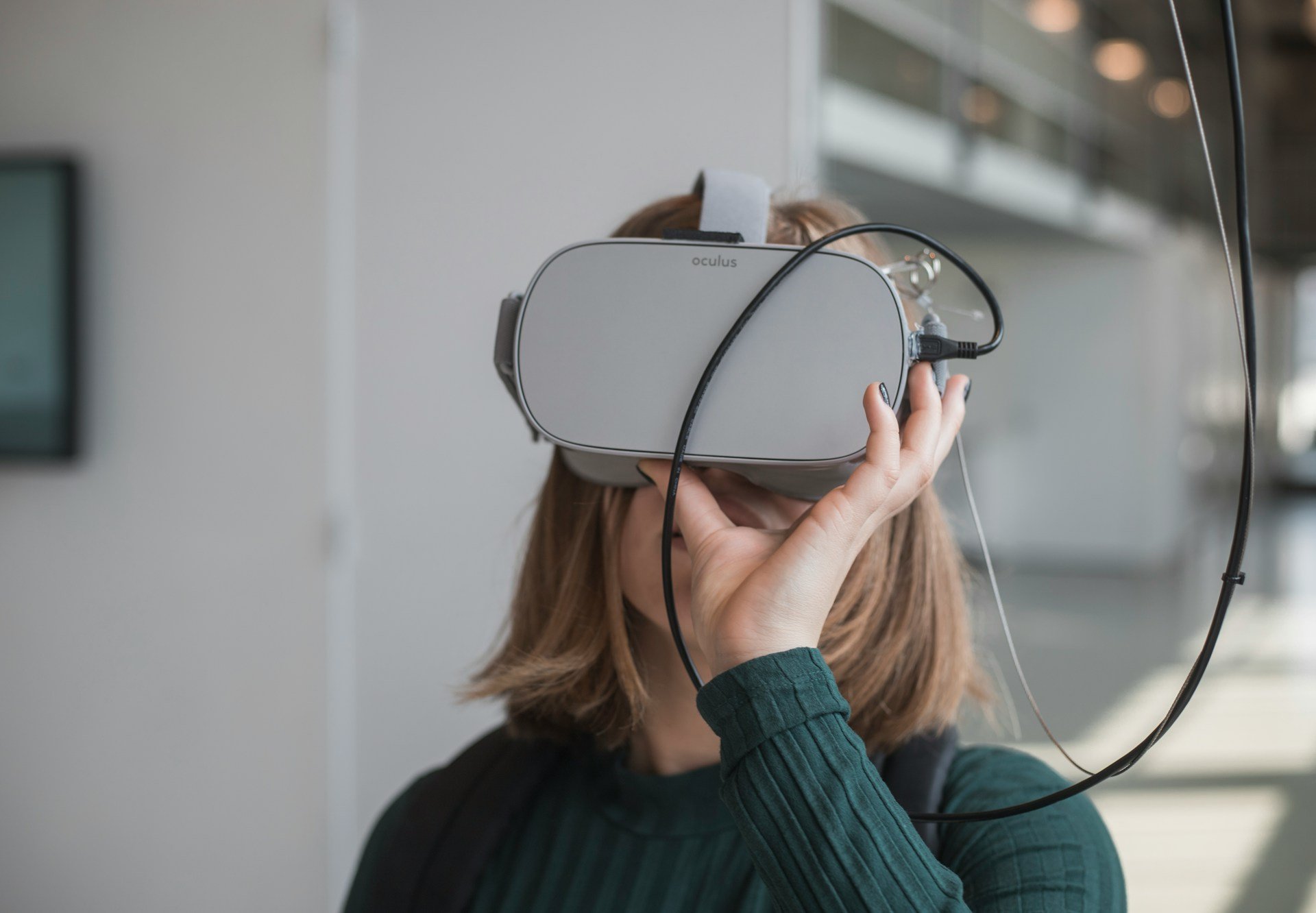
Virtual reality (VR) in the hospitality sector is commonly used for creating virtual travel experiences using 360-degree video technology.
VR experiences are created using Computer vision techniques to reconstruct real-world environments. By capturing images or videos of physical space and processing them with computer vision algorithms, developers can create detailed 3D models for VR simulations.
Using this technology, the users can experience a virtual recreation of different aspects of travel, including:
- Virtual Tours: Hotels and resorts can provide immersive virtual tours of their facilities. Potential guests can explore rooms, amenities, and recreational areas from the comfort of their homes, giving them a better sense of the property before booking.
- Destination Exploration: VR can provide users with a virtual experience to travel to destinations or attractions. E.g. hotels can offer VR experiences that showcase nearby landmarks, beaches, museums, and other points of interest, helping guests plan their itineraries and build anticipation for their trip.
- Event Previews: Hotels often host weddings, conferences, and other events. VR can enable clients to preview event spaces and customize layouts virtually, allowing them to make informed decisions and visualize their event setups beforehand.
- Training and Onboarding: VR can be valuable for training staff in various hospitality roles, from front desk management to housekeeping. Simulated scenarios can help employees practice handling customer interactions, emergency procedures, and service standards in a safe, controlled environment.
- Room Customization: Guests can use VR to personalize their rooms before arrival. They can virtually preview different room configurations, decor styles, and amenities, enabling them to make tailored choices that match their preferences.

Hotel Rooms –source
Check-in and Check-out Process
Hotels can implement facial recognition technology at check-in counters to identify guests quickly and accurately. Guests will upload a photo during the reservation process, which is then used for identification upon arrival. This eliminates the need for physical identification documents and reduces check-in times significantly, minimizing wait times and administrative hassles. Thus, increasing customer satisfaction.
Moreover, the guests can seamlessly check in and out of the hotel.
Security, Surveillance, and Parking Management
Cameras at parking entrances and exits capture license plate information, which allows for automated vehicle entry and exit processes. These systems can be seen easily at various places such as airports, malls, hotels, and resort entrances.
Moreover, these systems can also be synced with mobile applications, allowing the customers to know where free parking space is available.
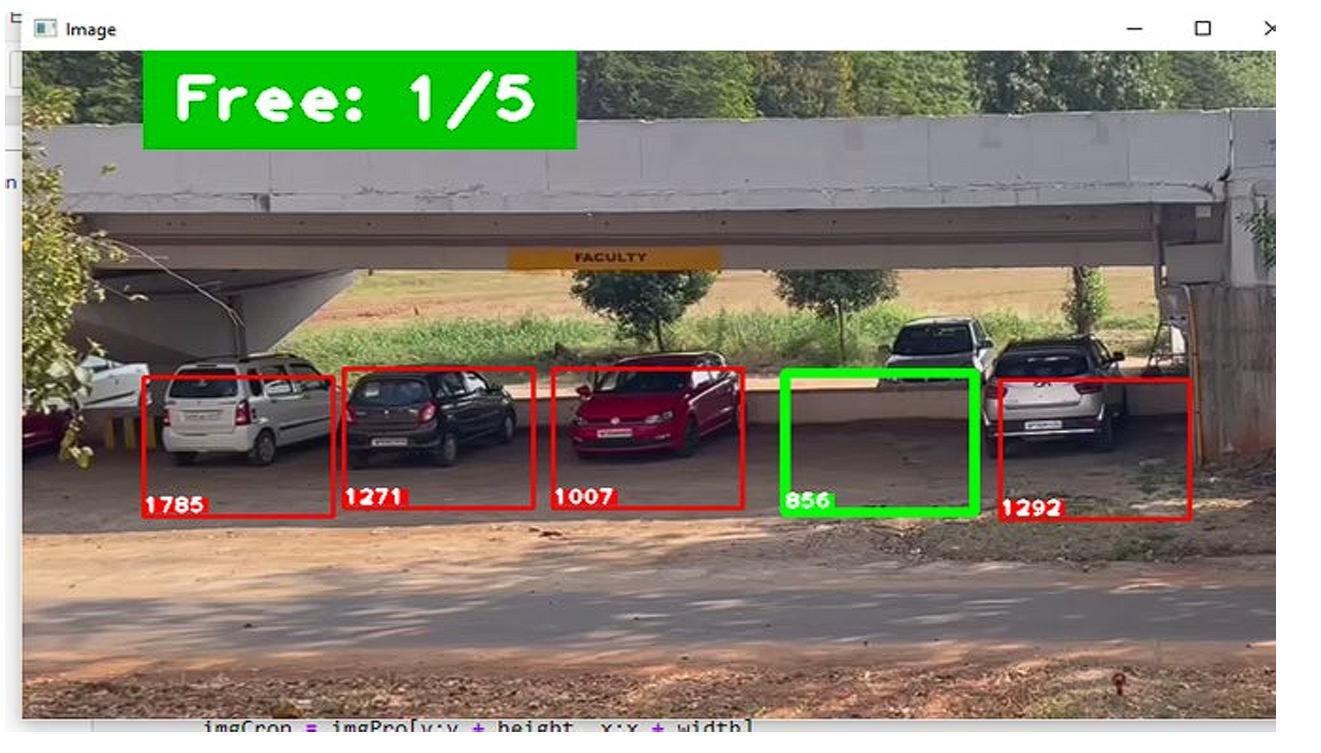
CV systems equipped with surveillance cameras can be used for continuously monitoring hotels and resorts, such as the entrances, lobbies, corridors, pools, and parking areas.

Moreover, they can be used to detect suspicious activities or unauthorized individuals, triggering alerts for security personnel. These cameras can also be used to ensure the safety of guests by monitoring swimming pools, fitness centers, and other facilities for any emergencies or accidents.
Personalized Experience
Computer vision applications can be used to analyze guest preferences, moods, and behavior of customers to provide a more personalized experience. For eg, if the guest seems to be tired, the system can suggest a massage, or if the guest is feeling hungry, it can order food for them.
Housekeeping and Maintenance
Computer vision applications can identify when guests have checked out of their rooms. It then informs the housekeeping staff to do cleaning and maintenance tasks, ensuring rooms are promptly prepared for incoming guests.
Inventory Management
Cameras in hotel restaurants and bars monitor inventory levels of food, beverages, and other supplies in real time. When inventory levels reach a predefined threshold, the system generates alerts for staff to restock supplies, which minimizes stockouts and optimizes inventory, thus improving customer experience. Cameras can also inspect food preparation areas for hygiene standards and food safety regulations, ensuring the quality and freshness of offerings.
Moreover, these systems can also be used to save food and resources, by strategically managing the required food or drinks, reducing food wastage.
Guest Behavior and Gathering
Computer vision applications can track and analyze guest movement patterns within the hotel to generate heatmaps throughout the day, and later this data can be used to find points of interest at a particular time of day and week. Hotels can use this data to optimize their layout, staffing, and service offerings to better meet guest needs and preferences. If the pool has the highest number of people, more staff can be allocated.
Health and Safety Compliance
Although COVID-19 has passed, during such a pandemic, CV in hotels can be used to monitor guest density in common areas, allowing for appropriate distancing. These cameras can also be used to identify whether guests and staff are wearing masks properly and following other hygiene protocols.
Environmental Sustainability
Hotels can utilize AI and CV for Energy Conservation. These systems can control lights and A/C based on occupancy levels and other conditions, reducing energy consumption. Hotel rooms equipped with these systems can auto-turn off any unused appliances.
Application of Computer Vision in Casinos

Casinos can leverage computer vision to improve operational efficiency and customer experience in Casinos. Here are some of the ways this can be done.
Security and Surveillance
Owners can use AI in casinos to automatically detect people who are banned, moreover, the owners can form a connected group and share the information so that banned people can’t enter any casino. This helps in preventing fraud and theft and ensures a safe environment for guests.
Computer vision systems can also analyze video to detect unusual behavior patterns, such as card counting, collusion among players, or attempts to cheat at games. This is one of the major issues that casinos face. Here are some of the challenges presented.
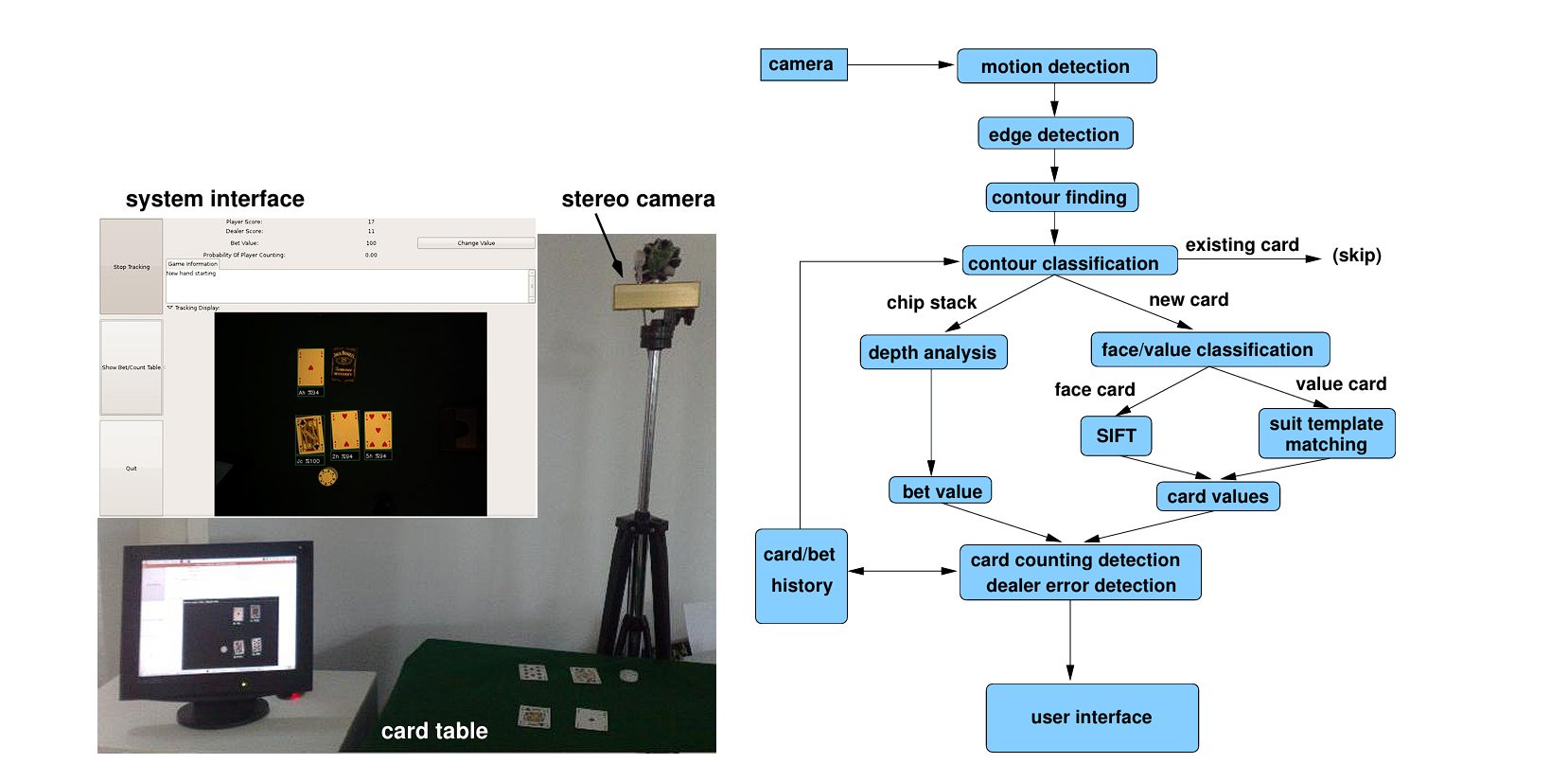
- Loss of Revenue: Cheating and collusion lead to substantial financial losses as skilled card counters and colluding (a form of cheating that involves two or more players secretly working together) players can significantly increase their odds of winning, draining casino profits.
- Increased Operational Costs: As a result, casinos have to invest heavily in surveillance and security, which is usually done by hiring specialized security personnel. However, by using Computer Vision, casino owners can cut down on these costs and improve performance.
- Game Integrity: If cheating goes undetected, this undermines the integrity of the games, leading to unfair losses for the casino and potentially skewing game results. As a result, people lose trust in the establishment, leading to a decline in customer loyalty and a decrease in repeat business.
Moreover, cameras equipped with computer vision can track the movement of chips, cash, and valuable assets within the casino, helping to prevent theft and unauthorized transactions.
Guest Experience Enhancement
Casinos can provide personalized services to guests, such as customized greetings, offers, and recommendations based on their preferences and past behavior. It can also be used for queue management, as these systems can monitor guest traffic flow and wait times at gaming tables, restaurants, and entertainment venues, optimizing staffing levels and improving guest satisfaction.
Game Monitoring and Analytics

Computer vision applications integrated with cameras in casinos can monitor table games such as blackjack, roulette, and poker to track player behavior, detect irregularities, and ensure fair play. In table games, cheating is quite common.
- Card Counting: Card counting (players who try to overcome the casino’s house edge by keeping a running count of high and low-valued cards dealt) is not allowed and can lead to players being banned from casinos.
- Shuffle Tracking: Players track groups of cards through shuffles to predict the sequence of cards in the shoe. This requires a deep understanding of the shuffle process.
- Marking Cards: Cheaters mark cards with subtle, often invisible marks that only they can see. This helps them identify high or low cards as they are dealt.

Card Counting –source
Casinos usually perform checks on these cheating practices using staff members, however, it is inefficient and leads to loopholes. CV applications can track the movement and patterns and analyze the strategy used by the players to detect if they are involved in any cheating practices discussed above.
Moreover, chip tracking can also be performed. Here, the system tracks the movement of casino chips on gaming tables, detecting counterfeit chips, theft, or unauthorized transactions.
Streamline Operations and Player Experience
Computer vision can be used to automate activities of table games, such as tracking card values or recognizing winning hands. This allows the staff to focus on more important things, such as fraud detection.
Challenges in Adoption
We have discussed several key areas where CV can be applied in hotels, resorts, and casinos. However, this is one industry that has been hesitant about adoption. Several challenges need to be solved for streamlined adoption. Here are a few of them:
- The majority of the hotels still rely on traditional management and operational systems. Integrating computer vision for resorts and hotels requires significant investment and technical expertise. This makes it difficult for owners to make a drastic shift.
- Implementing computer vision for hotels and resorts that are smaller in size can be expensive.
- There are concerns about guest privacy when using facial recognition and other monitoring technologies. Hotels need to take the guests into confidence, make them comfortable, and provide security of data privacy.
- Hotel staff fear that they might lose their jobs, and hence are skeptical about learning to use these technologies. Owners need to ensure that staff jobs are not at risk.
